
Iringa: A Hidden Gem in Tanzania's Heartland
Nestled in the southern highlands of Tanzania, Iringa is a city rich in history, culture, and natural beauty. Known for its cool climate and stunning landscapes, Iringa offers a refreshing escape from the tropical heat of the lowlands. The city sits atop a hill overlooking the Little Ruaha River, providing breathtaking views and an ideal setting for relaxation and exploration. Iringa is home to several historical sites, including the Isimila Stone Age Site, where visitors can marvel at ancient stone tools and impressive geological formations. The city also boasts vibrant markets, where you can immerse yourself in local culture and shop for unique souvenirs. Don't miss the Neema Crafts Centre, which supports people with disabilities and offers beautiful handcrafted items. For nature enthusiasts, Ruaha National Park is just a short drive away. It's one of Tanzania's largest and most unspoiled parks, teeming with wildlife such as elephants, lions, and rare birds. Whether you're exploring the historical sites, enjoying the natural scenery, or engaging with the local community, Iringa promises an unforgettable experience.
Local tips in Iringa
- Visit the Isimila Stone Age Site early in the morning to avoid crowds and enjoy the cool weather.
- Bring cash for shopping at local markets as many vendors do not accept credit cards.
- Consider staying at a local guesthouse for an authentic experience and to support the local economy.
- Hire a local guide for a more insightful and informative tour of historical sites and natural parks.
- Pack warm clothing, especially if visiting during the cooler months from June to August.
Iringa: A Hidden Gem in Tanzania's Heartland
Nestled in the southern highlands of Tanzania, Iringa is a city rich in history, culture, and natural beauty. Known for its cool climate and stunning landscapes, Iringa offers a refreshing escape from the tropical heat of the lowlands. The city sits atop a hill overlooking the Little Ruaha River, providing breathtaking views and an ideal setting for relaxation and exploration. Iringa is home to several historical sites, including the Isimila Stone Age Site, where visitors can marvel at ancient stone tools and impressive geological formations. The city also boasts vibrant markets, where you can immerse yourself in local culture and shop for unique souvenirs. Don't miss the Neema Crafts Centre, which supports people with disabilities and offers beautiful handcrafted items. For nature enthusiasts, Ruaha National Park is just a short drive away. It's one of Tanzania's largest and most unspoiled parks, teeming with wildlife such as elephants, lions, and rare birds. Whether you're exploring the historical sites, enjoying the natural scenery, or engaging with the local community, Iringa promises an unforgettable experience.
When is the best time to go to Iringa?
Iconic landmarks you can’t miss
Iringa Sunset Hotel
Discover the beauty of Iringa from the comfort of Iringa Sunset Hotel, where stunning views and warm hospitality await every traveler.
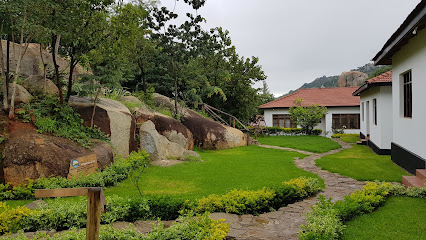
Mount Royal Villa Hotel
Discover the enchanting Mount Royal Villa Hotel in Gangilonga, Tanzania—a perfect blend of comfort, culture, and breathtaking landscapes.
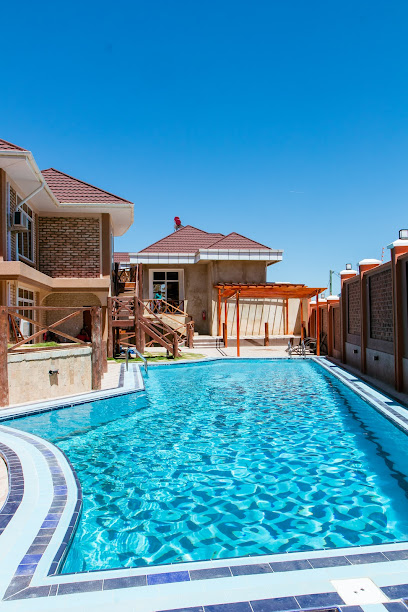
Mama Iringa
Discover Mama Iringa in Iringa, Tanzania for an authentic culinary journey through traditional Tanzanian flavors and warm hospitality.
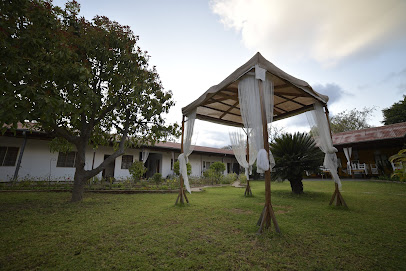
Neema Crafts
Discover Neema Crafts, a unique hotel in Iringa offering artisan accommodations and a cultural experience that supports local craftsmanship.
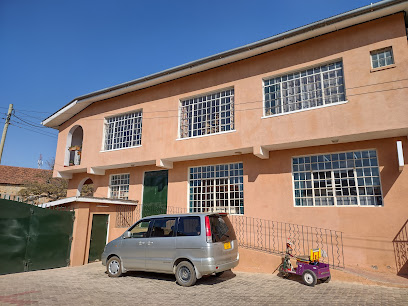
Iringa Boma
Explore the captivating history and culture of Iringa at the Iringa Boma Museum, a must-visit destination for every traveler in Tanzania.
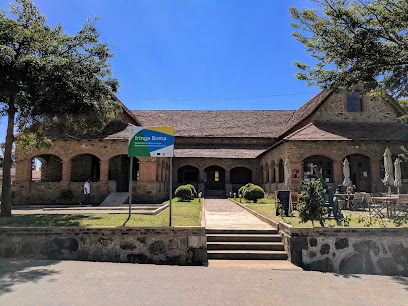
Isimila Hotel
Discover affordable comfort at Isimila Hotel in Iringa, Tanzania. A perfect base for exploring local attractions and rich cultural heritage.

Isimila stone Age site
Uncover the ancient secrets of humanity at Isimila Stone Age Site, a captivating archaeological destination in Tanzania.
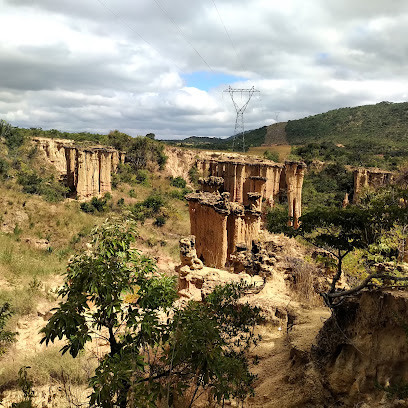
Iringa Town Bus Station
Discover the vibrant Iringa Town Bus Station, your gateway to Tanzania's stunning landscapes and rich cultural experiences.
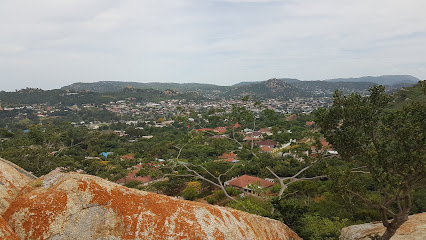
Mkwawa Museum
Discover the Mkwawa Museum, where the history of the Hehe people and Chief Mkwawa unfolds in captivating exhibits amidst Tanzania's cultural landscape.
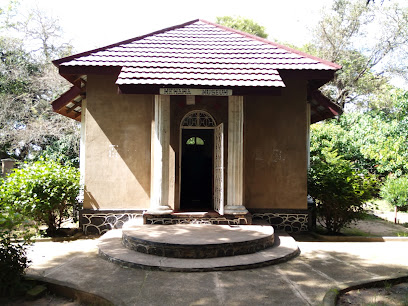
Magic Site Mkwawa
Explore the magic of wildlife at Magic Site Mkwawa, a serene zoo experience in Iringa, Tanzania, perfect for families and nature lovers.
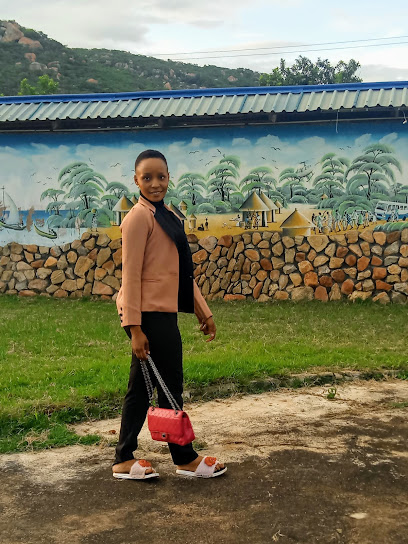
Wilolesi Hilltop
Discover the serene charm of Wilolesi Hilltop in Iringa, Tanzania, where breathtaking views meet rich cultural experiences in a cozy hotel setting.
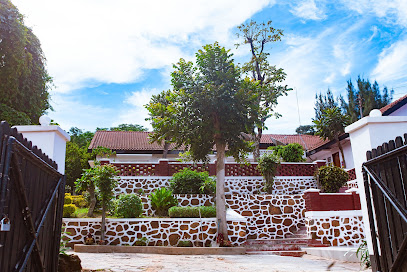
Hidden Valley Backpackers
Experience the beauty of Iringa at Hidden Valley Backpackers, where adventure meets comfort in a welcoming atmosphere.
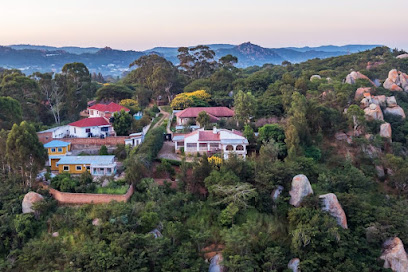
New Ruaha International Lodge
Discover serene comfort at New Ruaha International Lodge, your perfect retreat in Iringa, Tanzania, blending local charm with modern amenities.
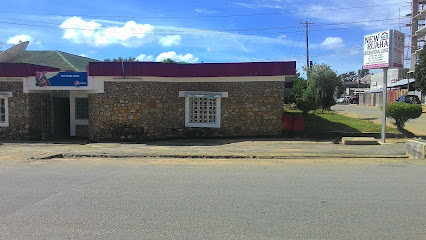
Isimila Museum
Discover the ancient wonders of Isimila Museum in Wenda, Tanzania, where history and nature converge in a captivating setting.
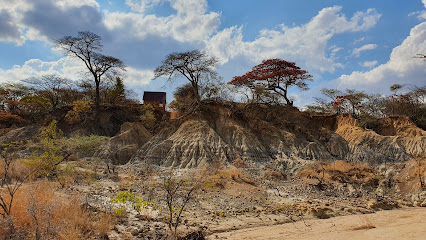
Tatanca Safaris & Tours
Explore the untamed beauty of Tanzania with Tatanca Safaris & Tours, your gateway to unforgettable wildlife adventures and cultural experiences.
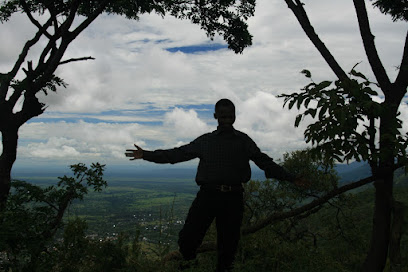
Unmissable attractions to see
Iringa Boma
Explore Iringa Boma, a cultural gem in Tanzania, where history and tradition come alive through captivating exhibits and stunning architecture.
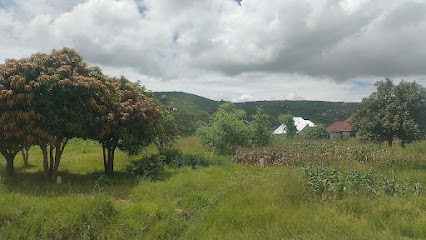
Isimila stone Age site
Explore the Isimila Stone Age Site, a captivating archaeological wonder in Tanzania revealing the secrets of human history and evolution amidst stunning natural beauty.
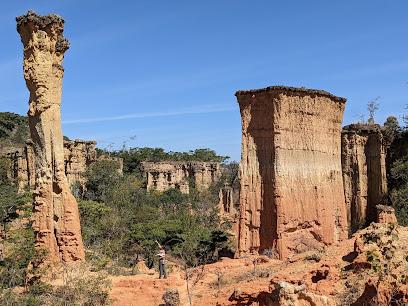
Magic Site Mkwawa
Explore the wonders of wildlife at Magic Site Mkwawa in Iringa, a captivating zoo offering immersive experiences and educational exhibits for all ages.
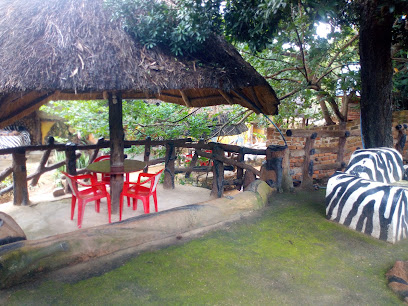
Ruaha National Park
Discover the untamed beauty of Ruaha National Park, a wildlife haven in Tanzania with breathtaking landscapes and rich biodiversity.
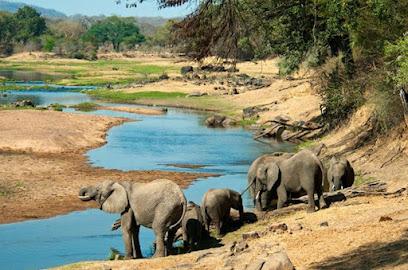
Gangilonga Rock
Explore Gangilonga Rock in Iringa, Tanzania - a breathtaking mountain peak with stunning views and rich historical significance.
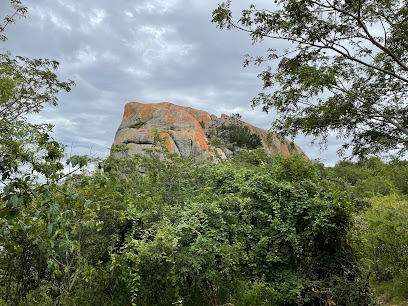
Ruaha National Park
Experience the breathtaking landscapes and diverse wildlife of Ruaha National Park, Tanzania's hidden gem for nature lovers and adventure seekers.
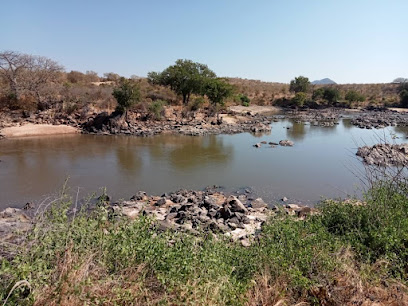
Igangilonga
Discover Igangilonga, Iringa's captivating tourist attraction, where stunning landscapes and vibrant culture await every traveler.
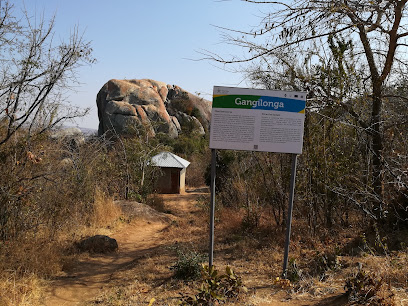
GANGILONGA, HISTORICAL SITE
Explore Gangilonga, an enchanting historical site in Iringa, Tanzania, known for its remarkable stone formations and rich cultural heritage.
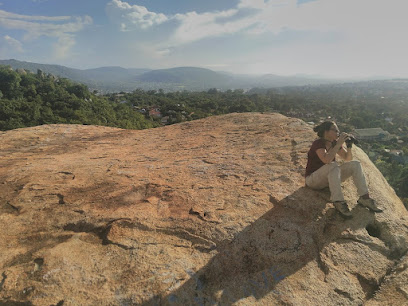
CHEMKA HOTSPRING - MAJI MOTO
Explore the natural beauty of Chemka Hotspring - Maji Moto, a serene oasis in Iringa with warm, mineral-rich waters and stunning landscapes.
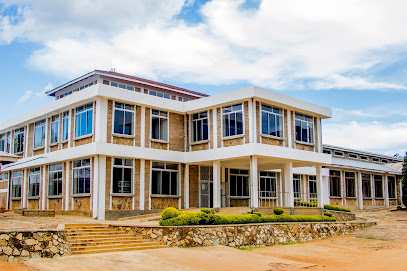
Iringa, Isimila Waterfall
Explore Isimila Waterfall in Iringa, a breathtaking natural wonder surrounded by lush scenery and vibrant wildlife, perfect for nature lovers and adventurers.
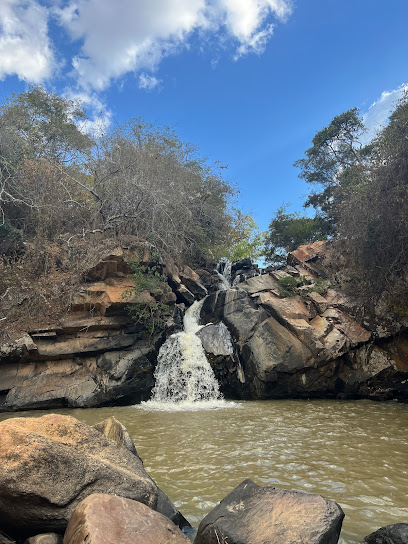
Iringa view point resort & campsite
Discover tranquility and breathtaking views at Iringa View Point Resort & Campsite, a perfect escape for travelers in Tanzania.
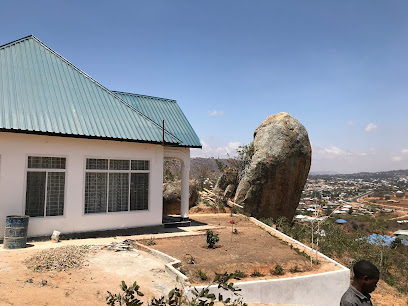
Zipline iringa
Experience the thrill of ziplining in Iringa, Tanzania, and enjoy breathtaking views of lush landscapes and vibrant scenery.
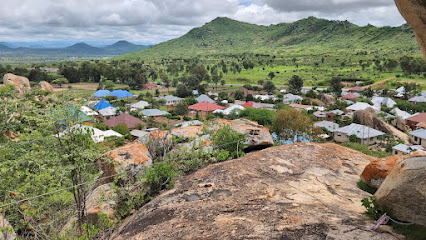
Kitwiru iringa
Explore the tranquility of Kitwiru Iringa, a hidden garden gem in Tanzania, perfect for nature lovers and those seeking a peaceful retreat.
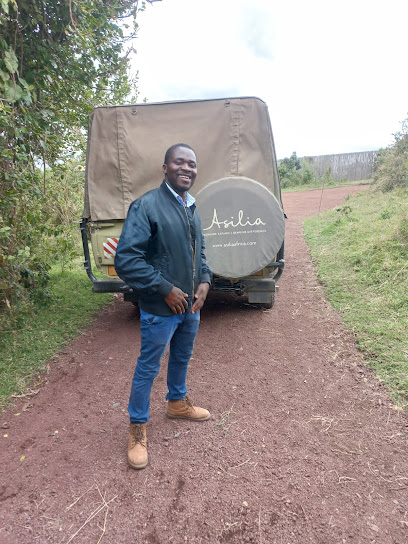
Iringa Rural
Explore the breathtaking landscapes and rich culture of Iringa Rural, a hidden gem in Tanzania perfect for adventure and local experiences.
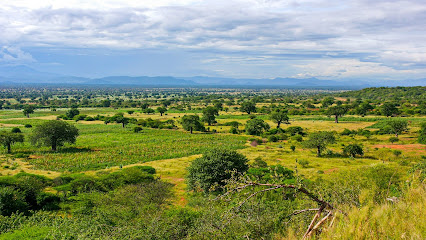
KITONONGE CAMPSITE
Discover the serene beauty of Kitononge Campsite in Iringa, Tanzania - your gateway to nature and local culture.
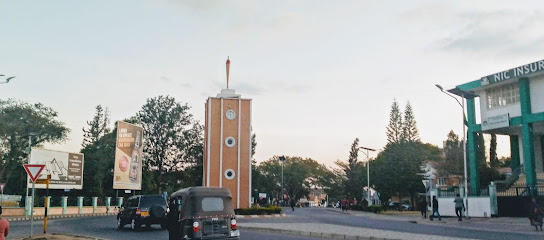
Essential places to dine
Iringa Sunset Hotel
Discover tranquility at Iringa Sunset Hotel with breathtaking views over Iringa town; your ideal getaway in Tanzania.
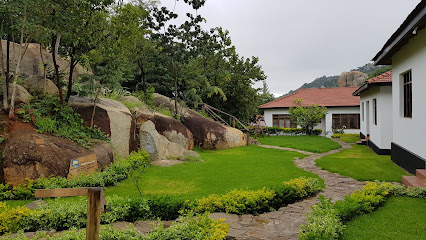
Miami Night Club
Discover Miami Night Club: Iringa's premier bar offering lively music, vibrant dance floors, and a taste of local nightlife culture.
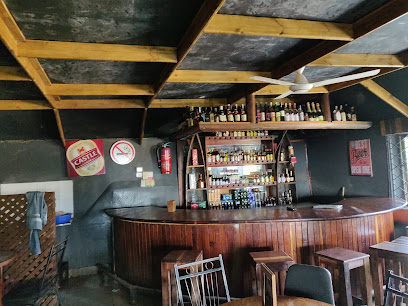
Mama Iringa
Experience authentic Tanzanian cuisine at Mama Iringa, where every dish tells a story and every visit feels like home.
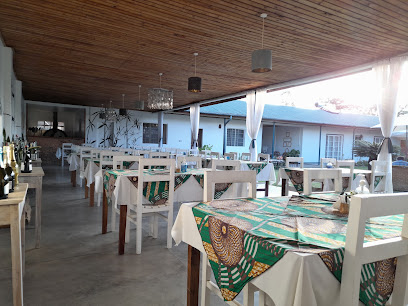
Sai Villa
Experience exquisite dining and warm hospitality at Sai Villa in Iringa – where every meal is a celebration of Tanzanian flavors.
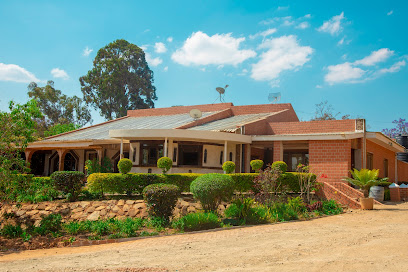
Neema Crafts
Discover authentic Tanzanian craftsmanship and cuisine at Neema Crafts in Iringa - a cultural hub for travelers seeking unique experiences.
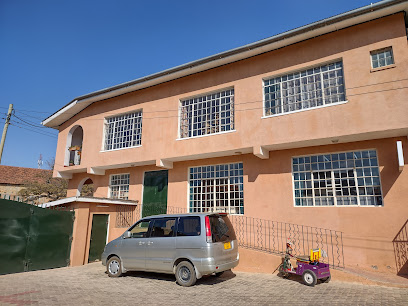
Hasty Tasty Too
Discover Hasty Tasty Too in Iringa: A charming cafe offering delightful cuisine and an inviting atmosphere perfect for travelers.
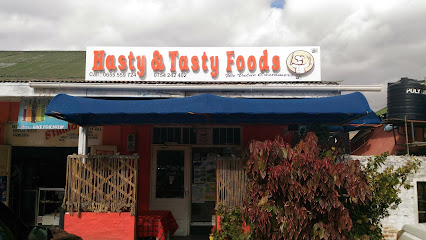
Shooters Pub 'N' Cuisine
Discover vibrant nightlife at Shooters Pub 'N' Cuisine in Iringa - where great food meets friendly service in a lively atmosphere.
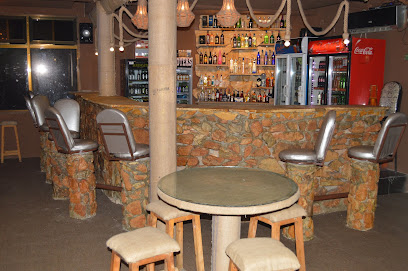
Clock Tower Cafe
Experience authentic Tanzanian cuisine at Clock Tower Cafe in Iringa - where flavor meets comfort in every bite.
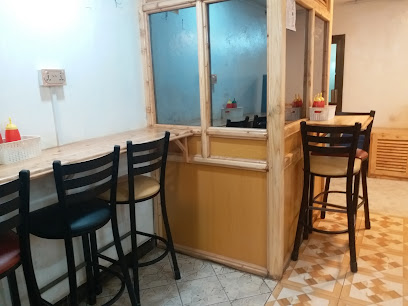
Ruksana's Indian Restaurant
Discover authentic Indian cuisine at Ruksana's Indian Restaurant in Iringa - where every dish tells a story of tradition and flavor.
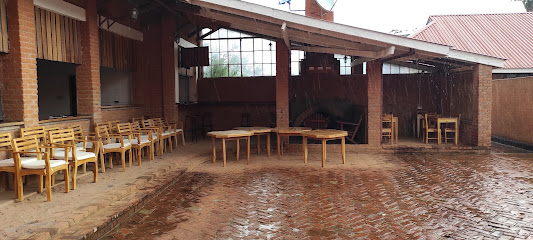
Babanusa Cafeteria
Discover authentic Tanzanian flavors at Babanusa Cafeteria in Iringa—where cozy ambiance meets delicious cuisine.
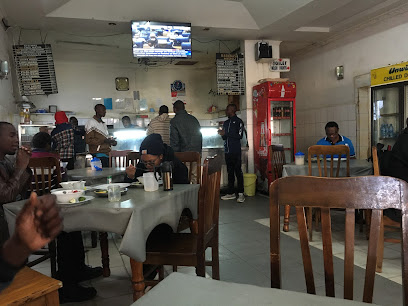
Pub lavera
Discover the heart of Iringa at Pub Lavera – where vibrant culture meets delightful drinks in a welcoming atmosphere.
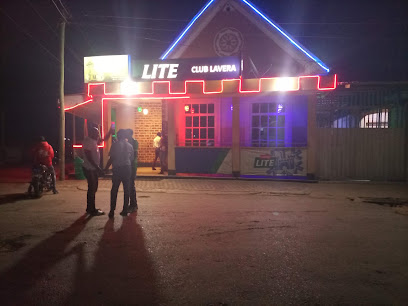
Backyard Lounge
Discover relaxation at Backyard Lounge in Iringa - where delicious food meets vibrant atmosphere amidst Tanzania's beautiful landscapes.
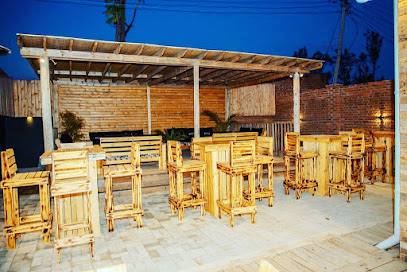
Stormy Lounge &grill
Discover vibrant flavors at Stormy Lounge & Grill in Iringa – where local cuisine meets global tastes in a cozy setting.
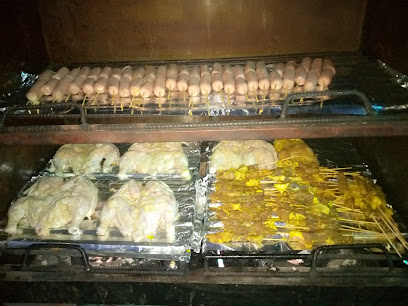
Mabanda ya CCM
Experience the vibrant nightlife of Iringa at Mabanda ya CCM, where local flavors meet friendly faces in a lively bar atmosphere.
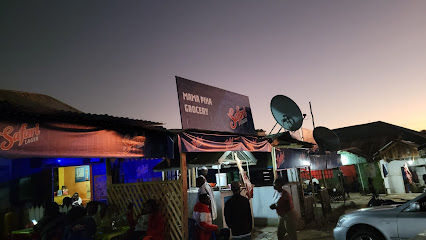
RETCO
Experience authentic Tanzanian flavors at RETCO in Iringa – a must-visit restaurant for every traveler seeking local culinary delights.
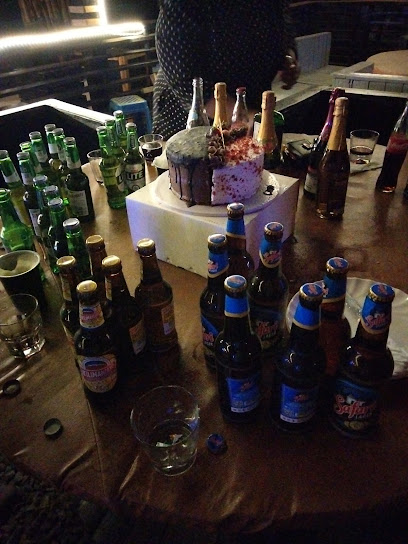
Markets, malls and hidden boutiques
Gangilonga Supermarket
Explore Gangilonga Supermarket in Iringa for a taste of local culture and a wide selection of fresh produce and traditional Tanzanian snacks.
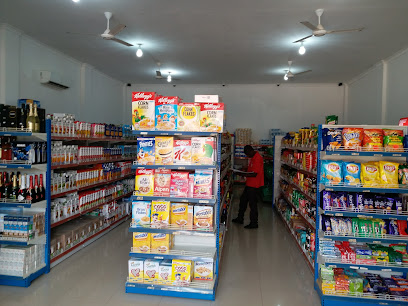
Manish ShopMart
Discover Iringa's Manish ShopMart, the ultimate destination for budget-friendly shopping, fresh produce, and local goods in Tanzania.
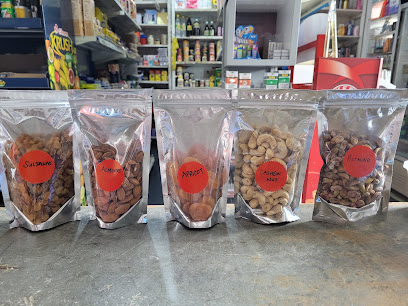
Mwembeni
Explore Mwembeni in Iringa for unique home goods and local crafts that embody the spirit of Tanzania's rich cultural heritage.

Amani Stores
Explore Amani Stores in Iringa for all your hardware needs, offering a vast selection of tools and supplies for every project.
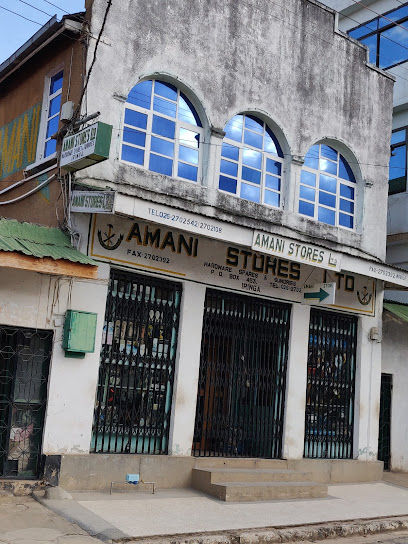
FAVOR HARDWARE
Explore the unique offerings at Favor Hardware, Iringa's top home goods store, showcasing local craftsmanship and essential products.

FREELANCER
Explore the heart of Iringa's music culture at Freelancer Music Store, where local rhythms and instruments await your discovery.

MAMA DOGO SHOP
Experience the essence of Iringa at Mama Dogo Shop, your go-to grocery store for local flavors and fresh produce.

Mama wa ukweli shop
Discover authentic Tanzanian home goods at Mama wa Ukweli Shop in Iringa - a treasure trove for culture and craftsmanship.

Ammy Intimates
Explore trendy fashion at Ammy Intimates, Iringa's premier clothing store offering a unique selection of local styles and accessories.

Charisa home store.
Explore Charisa Home Store in Iringa for authentic Tanzanian home goods and unique treasures that showcase local craftsmanship.

Kwa Mama Lili
Discover unique local fashion at Kwa Mama Lili in Iringa, where traditional craftsmanship meets contemporary style in a vibrant shopping atmosphere.

KAS
Explore KAS in Iringa for an authentic shopping experience filled with local crafts and vibrant culture, perfect for memorable souvenirs.

Bohari Iringa
Explore Bohari Iringa for authentic Tanzanian crafts, vibrant culture, and a unique shopping experience in the heart of Iringa.
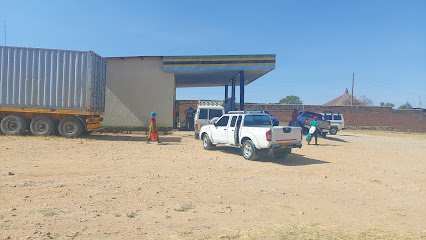
Saleko Mtumba Classic
Uncover unique fashion finds and immerse yourself in local culture at Saleko Mtumba Classic, Iringa's vibrant used clothing store.
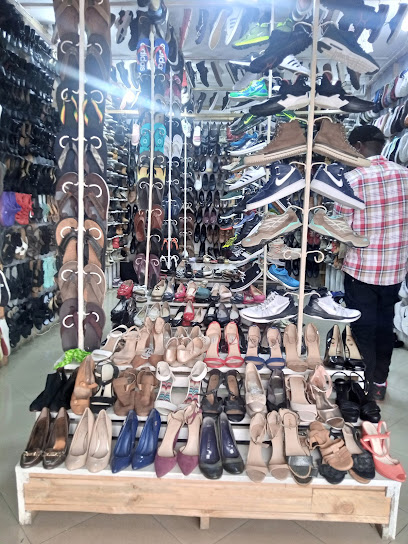
Maasai Market Iringa - Jacana African Design
Explore the vibrant Maasai Market in Iringa, a hub of unique gifts and authentic Tanzanian culture, showcasing the artistry of local artisans.

Essential bars & hidden hideouts
Miami Night Club
Experience the electrifying nightlife at Miami Night Club in Iringa, Tanzania, where music, dancing, and local culture come alive.
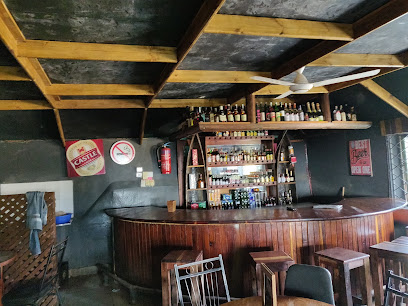
Shooters Pub 'N' Cuisine
Experience the lively spirit of Iringa at Shooters Pub 'N' Cuisine, where delicious food and refreshing drinks meet vibrant social energy.
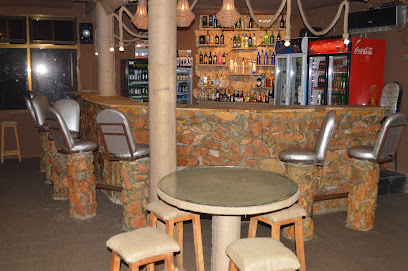
Pub lavera
Discover the authentic vibe of Iringa at Pub Lavera, where local culture and delicious drinks blend seamlessly for an unforgettable experience.
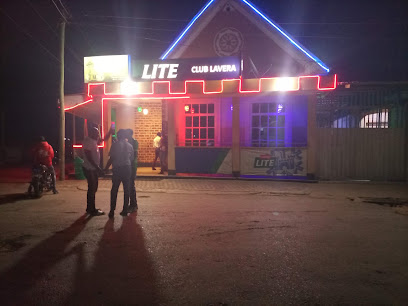
INBOX LOUNGE
Experience the lively atmosphere of Inbox Lounge in Iringa, Tanzania, a perfect bar for relaxation and socializing with friends over drinks.
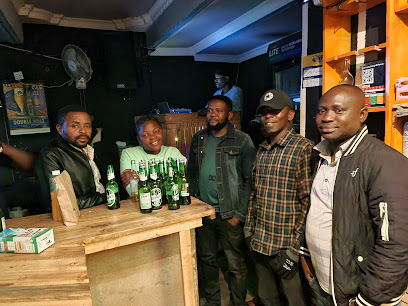
lock down pub
Experience the vibrant nightlife of Iringa at Lock Down Pub, a local favorite for great drinks, delicious food, and lively entertainment.
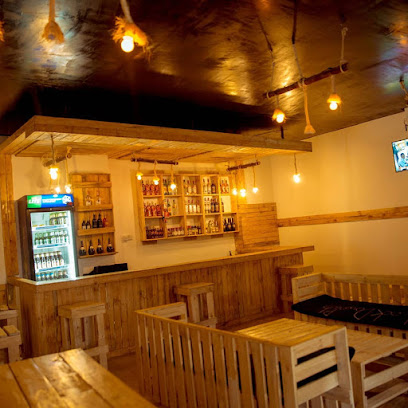
Savannah Pub
Discover the vibrant atmosphere of Savannah Pub in Iringa, where local culture meets a lively bar scene for an unforgettable experience.
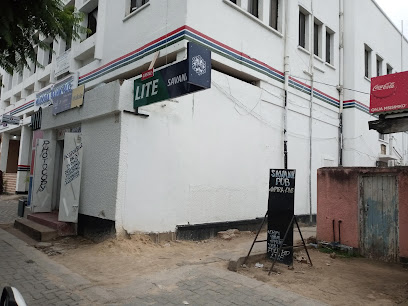
Sterio Bar
Discover the vibrant nightlife at Sterio Bar in Iringa, a perfect spot for drinks and socializing with locals and travelers alike.
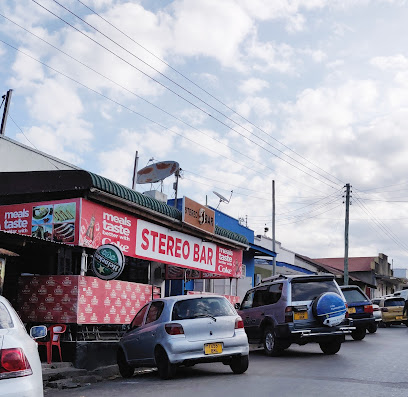
BAR MPYA
Experience the vibrant local nightlife at BAR MPYA, a must-visit bar in Iringa offering diverse drinks and a welcoming atmosphere.

Retco Pub
Discover the lively charm of Retco Pub in Iringa, where local culture meets a vibrant atmosphere for a memorable night out.
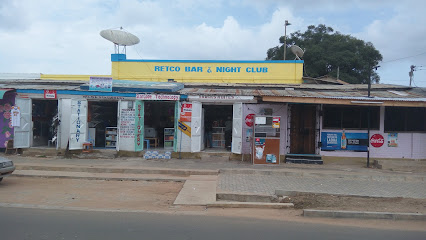
Black and White Pub
Experience the heart of Iringa at Black and White Pub, where local culture meets a cozy atmosphere and a wide selection of drinks.

Wachifipa Pub
Discover the lively vibe of Wachifipa Pub in Iringa, where locals and tourists mingle over drinks in a welcoming atmosphere.

Essence Pub
Experience the vibrant atmosphere of Essence Pub in Iringa, Tanzania, where local culture meets refreshing drinks in a welcoming environment.
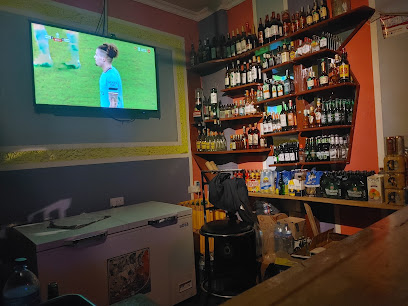
Crown pub
Discover the vibrant atmosphere of Crown Pub in Iringa, a perfect blend of local culture and refreshing beverages for every traveler.

The Last Call Pub
Discover the vibrant nightlife of Iringa at The Last Call Pub, where local culture and a warm atmosphere create unforgettable moments.
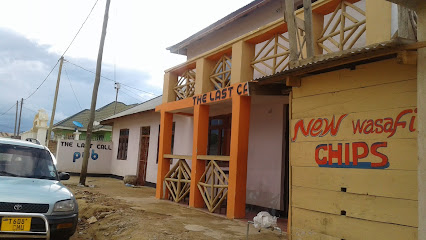
C2C Bar n Pub
Discover the vibrant atmosphere of C2C Bar n Pub in Iringa, where local flavors meet global tastes in a friendly environment.

Local Phrases
-
- HelloJambo
[jahm-boh] - GoodbyeKwaheri
[kwah-heh-ree] - YesNdio
[nn-dee-oh] - NoHapana
[hah-pah-nah] - Please/You're welcomeTafadhali
[tah-fah-dha-lee] - Thank youAsante
[ah-sahn-teh] - Excuse me/SorrySamahani
[sah-mah-hah-nee] - How are you?Habari za leo?
[hah-bah-ree zah lay-oh] - Fine. And you?Salama. Na wewe?
[sah-lah-mah. nah weh-weh] - Do you speak English?Unasema Kiingereza?
[oo-nah-seh-mah kee-een-geh-reh-zah] - I don't understandSielewi
[see-leh-wee]
- HelloJambo
-
- I'd like to see the menu, pleaseNataka kuona menyu, tafadhali
[nah-tah-kah kwoh-nah meh-nyoo, tah-fah-dha-lee] - I don't eat meatSili nyama
[see-lee nyah-mah] - Cheers!Mambo!
[mahm-boh] - I would like to pay, pleaseNingependa kulipa, tafadhali
[nee-ngeh-pehn-dah koo-lee-pah, tah-fah-dha-lee]
- I'd like to see the menu, pleaseNataka kuona menyu, tafadhali
-
- Help!Msaada!
[msah-ah-dah] - Go away!Nenda zako!
[nen-dah zah-koh] - Call the Police!Piga polisi!
[pee-gah poh-lee-see] - Call a doctor!Piga daktari!
[pee-gah dahk-tah-ree] - I'm lostNimepotea
[nee-meh-poh-teh-ah] - I'm illNinaumwa
[nee-nah-oom-wah]
- Help!Msaada!
-
- I'd like to buy...Ningependa kununua...
[nee-ngeh-pehn-dah koo-noo-noo-ah] - I'm just lookingNaangalia tu
[nah-ahn-gah-lee-ah too] - How much is it?Bei ni kiasi gani?
[beh-ee nee kyah-see gah-nee] - That's too expensiveHiyo ni ghali sana
[hee-yoh nee gah-lee sah-nah] - Can you lower the price?Unaweza kushusha bei?
[oo-nah-weh-zah koo-shoo-shah beh-ee]
- I'd like to buy...Ningependa kununua...
-
- What time is it?Ni saa ngapi?
[nee sah-ah ngah-pee] - It's one o'clockSaa moja
[sah-ah mo-jah] - Half past (10)Nusu (kumi)
[noo-soo (koo-mee)] - MorningAsubuhi
[ah-soo-boo-hee] - AfternoonAlasiri
[ah-lah-see-ree] - EveningJioni
[joh-ee-oh-nee] - YesterdayJana
[jah-nah] - TodayLeo
[lay-oh] - TomorrowKesho
[keh-shoh] - 1Moja
[moh-jah] - 2Mbili
[mbee-lee] - 3Tatu
[tah-too] - 4Nne
[n-neh] - 5Tano
[tah-noh] - 6Sita
[see-tah] - 7Saba
[sah-bah] - 8Nane
[nah-neh] - 9Tisa
[tee-sah] - 10Kumi
[koo-mee]
- What time is it?Ni saa ngapi?
-
- Where's a/the...?Iko wapi...?
[ee-koh wah-pee] - What's the address?Ni anwani gani?
[nee ahn-wah-nee gah-nee] - Can you show me (on the map)?Unaweza kunionyesha (kwenye ramani)?
[oo-nah-weh-zah koo-nyoh-nyeh-shah (kweh-nyeh rah-mah-nee)] - When's the next (bus)?Basi la pili litakuwa lini?
[bah-see lah pee-lee lee-tah-koo-wah lee-nee] - A ticket (to ....)Tiketi (kwenda ....)
[tee-keh-tee (kwehn-dah)]
- Where's a/the...?Iko wapi...?
History of Iringa
-
In the late 19th century, the indigenous Hehe people, under the leadership of Chief Mkwawa, fiercely resisted German colonial forces. The Hehe Rebellion, which began in 1891, was a significant chapter in Iringa's history. Chief Mkwawa's guerrilla tactics and knowledge of the rugged terrain made the Hehe formidable opponents. The rebellion came to a tragic end in 1898 when Chief Mkwawa committed suicide to avoid capture. His skull was taken to Germany but was later returned to Tanzania in 1954.
-
Iringa was established as a military base by the Germans during their colonial rule in the late 19th and early 20th centuries. The town's strategic location made it an important administrative and military center. German architectural influences can still be seen in some of the older buildings in Iringa, including the Boma, a fort that served as the German administrative headquarters.
-
During World War I, Iringa became a battleground between German and British colonial forces. The town's strategic importance was underscored by its use as a base for both German and later British military operations. The war left a lasting impact on the region, disrupting local communities and economies.
-
After the defeat of the Germans in World War I, Iringa came under British control as part of the Tanganyika Territory. The British continued to develop the town, introducing new administrative structures and infrastructure. The legacy of British colonial rule is evident in the town's layout and some of its public buildings.
-
Following Tanzania's independence in 1961, Iringa saw significant changes and development. The town became a center for education and agriculture. The establishment of the University of Iringa and various agricultural initiatives contributed to the town's growth and modernization.
-
Iringa is home to the Hehe people, who have preserved their rich cultural heritage. Traditional music, dance, and crafts are integral to the local culture. The town also hosts various cultural festivals that celebrate the history and traditions of the Hehe and other ethnic groups in the region.
-
Located just outside Iringa, the Isimila Stone Age Site is one of the most important archaeological sites in East Africa. It contains artifacts and fossils dating back over 60,000 years, providing crucial insights into early human life. The site's stone tools and other findings attract researchers and tourists alike, making it a significant historical landmark.
Iringa Essentials
-
Iringa is accessible by air, road, and rail. The nearest airport is Iringa Airport (Nduli Airport), which has flights mainly from Dar es Salaam. From Dar es Salaam, you can take a bus, which is a popular and economical option. The journey by bus takes approximately 8-10 hours. Alternatively, you can hire a private car or taxi for a more comfortable but costly trip. The TAZARA Railway also connects Dar es Salaam to nearby towns, from where you can take local transportation to Iringa.
-
Within Iringa, transportation options include local minibusses (dala-dalas), taxis, and motorcycle taxis (bodabodas). Dala-dalas are the most economical but can be crowded. Taxis are more comfortable and can be found at most major junctions and hotels. Bodabodas are convenient for short distances but exercise caution and wear a helmet. For a more personalized experience, consider renting a car.
-
The local currency in Tanzania is the Tanzanian Shilling (TZS). Credit cards are accepted in some hotels and larger restaurants, but cash is commonly used, especially in smaller establishments and markets. ATMs are available in Iringa town, but it is advisable to carry sufficient cash, especially if you plan to travel to rural areas. Currency exchange services are available at local banks and some hotels.
-
Iringa is generally safe for tourists, but standard precautions should be taken. Avoid walking alone at night and stay in well-lit areas. Be cautious in crowded places such as markets and bus stations, as petty theft can occur. Specific areas like certain parts of Gangilonga and Miyomboni may have higher crime rates targeting tourists, so it's best to avoid these neighborhoods after dark. Always keep an eye on your belongings.
-
In case of an emergency, dial 112 for police assistance or 115 for medical emergencies. The Iringa Regional Hospital is the main medical facility in the town. It is advisable to have travel insurance that covers medical emergencies. For minor ailments, pharmacies are available throughout the town where you can purchase over-the-counter medications. Keep a list of important contacts, including your country's embassy or consulate.
-
Fashion: Do dress modestly, especially when visiting religious sites or rural areas. Avoid wearing revealing clothing. Religion: Do respect local customs and traditions. Remove your shoes when entering religious sites. Public Transport: Do be polite and pay the fare promptly. Don't argue with the conductor. Greetings: Do greet people with a handshake; use your right hand as the left hand is considered impolite. Eating & Drinking: Do try local foods and drinks. Don't refuse hospitality, as it is considered disrespectful.
-
To experience Iringa like a local, visit the local markets such as the Gangilonga Market for fresh produce and handmade crafts. Take a walk around the town to explore its colonial architecture and historic sites like the Isimila Stone Age Site. Engage with locals; they are friendly and often eager to share stories about their culture and history. Don't miss the nearby Ruaha National Park for a fantastic wildlife experience.
Trending Landmark in Iringa
Nearby Cities to Iringa
-
Things To Do in Dodoma
-
Things To Do in Morogoro
-
Things To Do in Mbeya
-
Things To Do in Karonga
-
Things To Do in Singida
-
Things To Do in Dar es Salaam
-
Things To Do in Stone Town
-
Things To Do in Zanzibar City
-
Things To Do in Tabora
-
Things To Do in Mzuzu
-
Things To Do in Nkhata Bay
-
Things To Do in Tanga
-
Things To Do in Arusha
-
Things To Do in Moshi
-
Things To Do in Kasama










